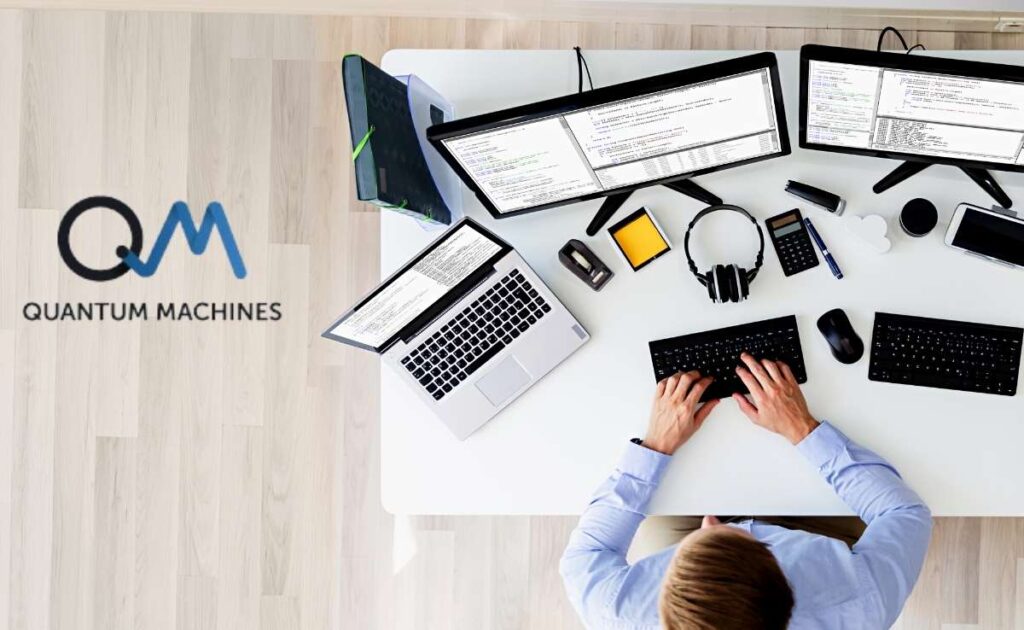Based on the Tel Aviv region in Israel, Quantum machines raised a whopping $50 million in their initial series B stage of funding rounds. Their hands in the Quantum Orchestration platforms happen to be one of their most efficient developments, which has a unique hardware and software system to run their burgeoning Quantum machines. Its function circulates amidst three industries: the industry of software, quantum computing, and software engineering.
Quantum machines is a young company to have established in 2018. Regardless, investors are significantly interested in the vision and hence, the company did pretty well in its funding rounds. Quantum machines take the help of classical computers to assist their quantum computers. However, the actual goal is not the creation of ‘quantum chips’.
Series B Funding round
On 5th September 2021, Quantum machines announced its series b funding round, making the company reach its series b stage. It raised approx $50 million and the leading company was Red Dot Capital Partners. The funding round also received support from its old investors. A few names to take part were Exor, Atreides Management LP, 2i Ventures, Samsung NEXT, Claridge Israel, TLV Partners, Battery Ventures, Valor Equity Partners, and so on. Quantum machines have managed to raise over $50 million in funds from their latest series B round.
Who is RDCP?
The venture capital firm was founded in 2016, only two years before the initial establishment of Quantum machines. RDCP has its roots in Israel, whereas the headquarter is located in Savyon. The company makes its move in investments alongside other partners. Its actual finance is backed by Sequoia Capital Israel, Viola Ventures, and 83 North and invests anywhere between $10 to $50 million in newly developed start-ups.
The co-founders’ thoughts on Series B funding
The CEO and co-founder of Quantum machines, Itamar Shivan has given all of his sweat to creating the company. And he continues to thrive and work harder to attain the peak potential he sees for Quantum machines. According to him, substantial computations will see rampant developments with help of quantum computers that seem feasible to many via classical computers. Itamar Shivan also explained the company’s vision is to make quantum computers available and used almost everywhere.
Quantum machines’ vision and use of funds
As said by the CEO and co-founder himself, Quantum machines have a vision of making quantum computers ubiquitous, i.e., making them useful and available in almost any sector. The funds raised will help the company to improve its grounds in research and development. Since the company is in its infancy stage, research and further development are of utmost importance.
The team of 60 shall also be increased to acquire a stronger team. Even when the COVID-19 pandemic hit, the company didn’t allow its severity to limit its growth. Rather, the company expanded its team as hiring began remotely from parts of the world.
Quantum machines and their prominent services
The usage of quantum computers and their reliability is enhanced via the error-correction tech and their category-defining quantum orchestration. As it is well understood, the QUA, which is a universal language has a beta version to already get adopted by advanced MNCs, authorized labs, startups, and even academic institutions that consist of quantum computers via quantum hardware like trapped ions & atoms, and quantum dots, superconducting qubits, etc.
On the other hand, Quantum machines offer a QUA standard that’s easier for researchers to thoroughly cut through some tedious quantum programs, having classical processings backed by real-time complex decision-making. In other words, Quantum machines have all kinds of notable features required to crack the most complicated quantum algorithm.
How much funding did Quantum machines raise and its investors
The series B funding round ended up as a huge victory for the Quantum machines as they were able to raise over $50 million from several VCs. The most evident investments were by Exor, Atreides Management LP, 2i Ventures, Samsung NEXT, Claridge Israel, TLV Partners, Battery Ventures, Valor Equity Partners, etc with the most valuable time and sum given by the Red Dot Capital Partners, the lead for series B funding round.
Today, Quantum machines have successfully attained an applaudable height, despite it being founded only in 2018. The Tel Aviv-based company has gained the trust of many of its clients, as well as investors nationwide.
It is run by a few scholars, Dr. Itamar Shivan, Dr. Yonaten Cohen, and Dr, Nissim Ofek who are experts in quantum electronics.
The main focus of the company is to offer qubit controllers (cloud-powered) to achieve a commendable experience with quantum computers, by providing quantum computers’ OP as they combine the classical computer with quantum computer tech. As a result, what you get is a high-tech quantum infrastructure. Quantum machines have arranged 5 funding rounds so far, to accumulate $153 million in total, backed by about 15 investors like Meron Capital and Alumni ventures.
Conclusion
By March 2021, Quantum machines bagged a position as one of the most innovative companies in an American business magazine. It was among the only second companies in Israel. Quantum technology is on the move of expansion and researchers require more tools to compete. In that sense, Quantum machines are of great help as it is meant to offer better quantum algorithms and hence, rampant scalability.
Frequently asked questions
Who is the owner of the Quantum machines?
The CEO and co-founder of the company are Itamar Shivan.
When were the Quantum machines founded?
Quantum machines were founded in 2018 and are based in Tel Aviv, Israel.
How much funds did the Quantum machines raise to date?
Quantum machines have raised a total of $153 million.
When was the latest funding round of the Quantum machines held?
The latest funding round was held in July of 2022 as a part of the series B round.
How many funding rounds for the Quantum machines have been held to date?
Quantum machines have held a total of 5 funding rounds, divided into series A and series B.

